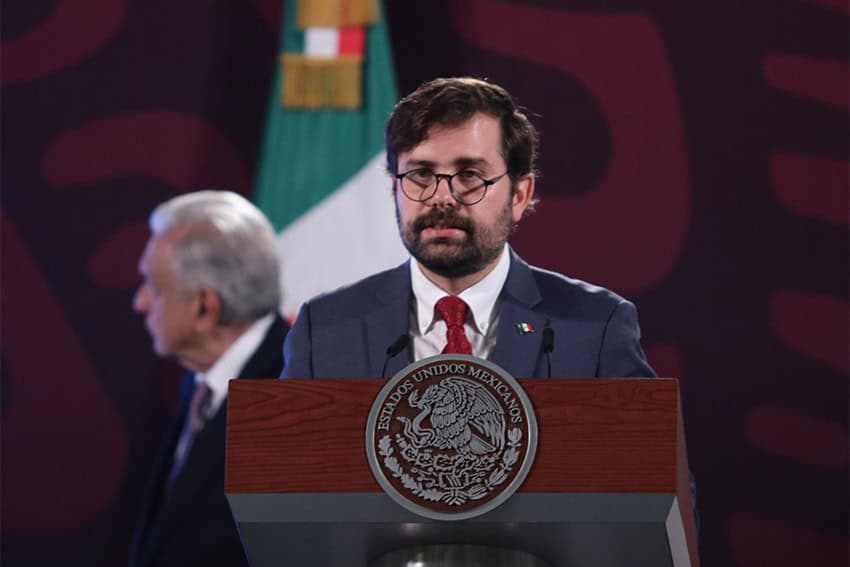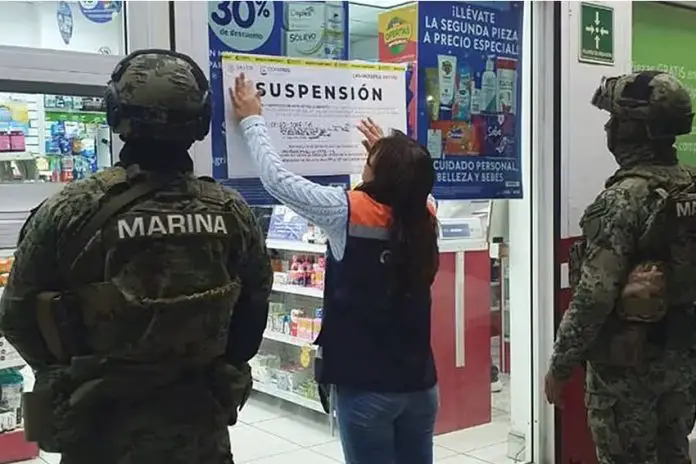Eleven of the 33 Baja California pharmacies shut down by federal health regulator Cofepris in December for selling adulterated drugs remain under review and are facing legal ramifications.
Speaking at Tuesday’s presidential press conference, Cofepris director Alejandro Svarch Pérez said the other 22 pharmacies have been reopened after providing exculpatory evidence during a regulatory review.
Svarch praised Baja California Governor Marina del Pilar Ávila and the state’s Health Ministry for their assistance throughout the process while he provided an update on the government’s effort to close down clandestine pharmacies.
The Baja California case began last year when specialized Cofepris personnel in coordination with the Mexican Navy conducted spot inspections of 83 of the 300 pharmacies in the municipality of Ensenada.
The raids — dubbed Operation Albatros II – were carried out in response to reports of rising fentanyl use in Mexico and following a report by U.S. researchers that Mexican pharmacies were marketing controlled medications such as oxycodone, when in reality the pills were often fentanyl-laced fakes.
In March, the U.S. State Department issued a travel warning, noting that pills being sold at pharmacies in Mexico “may contain deadly doses of fentanyl.”

In April, Expansión magazine reported that from 2018 through 2023, fentanyl-related emergencies spiked, with 43 times more people seeking treatment or arriving at emergency rooms after using fentanyl.
Fatalities from the drug are also on the rise. Mexico reported 114 fentanyl-related deaths from 2013–2022, but the total has been trending upward since 2017.
Although the numbers pale in comparison to the 80,411 opioid-related deaths in the United States in 2021 alone, the government is concerned that Mexico is transforming from a country of transit to one of drug consumption.
The adulterated drugs “are a serious health risk for anybody, but especially youth and tourists” who visit Ensenada, a popular resort area about 100 kilometers south of the U.S. border.
Demonstrating that Cofepris is taking precautions, Svarch said on Tuesday that Mexico has licensed three brands of methadone, a synthetic opioid agonist used to treat addiction to opioids. Thus far this year, Cofepris has authorized the importation of 60 kgs of methadone but says it will authorize more if necessary.
In addition to the raids and spot inspections in Baja California, Cofepris has been staging seminars for pharmacy owners and representatives to explain the regulations and help them remain in compliance.
Operation Albatros I was staged in the state of Quintana Roo and resulted in the shuttering of 53 pharmacies. In addition to finding adulterated drugs, the authorities found that several pharmacies did not have a proper license and others did not have documented suppliers.
With reports from Zeta, Sin Embargo and Expansión
